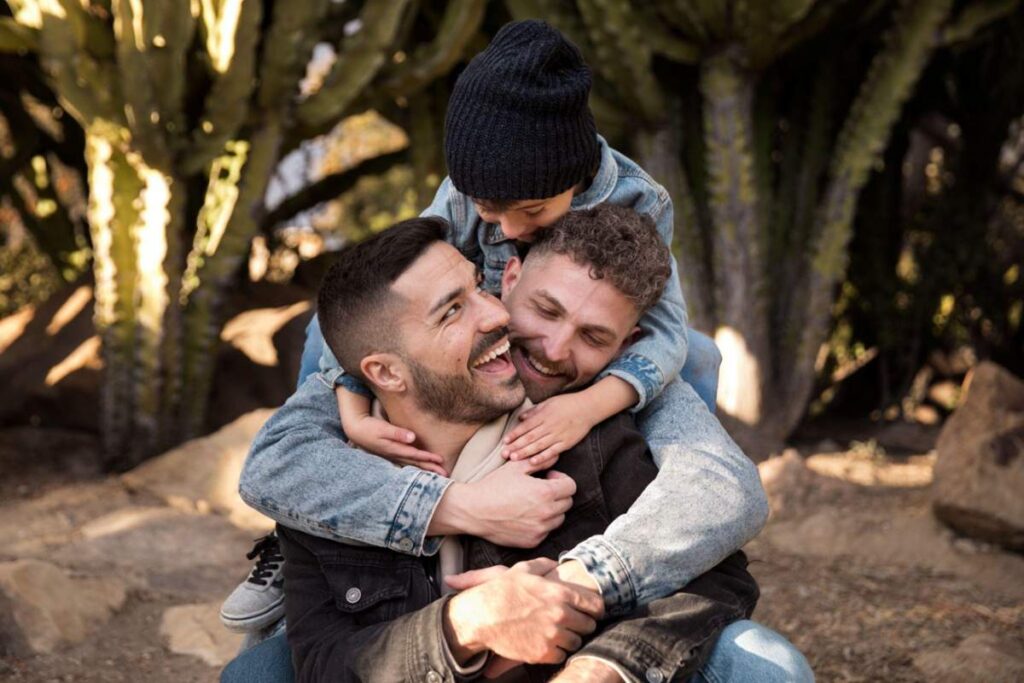The realm of family law, once rigid and unyielding, is now experiencing a dynamic shift, mirroring the evolving nature of family units in contemporary society. This transformation is being propelled forward by unique voices and perspectives that challenge traditional legal paradigms. Central to this wave of change is a figure both compelling and pioneering: a gay divorce attorney whose personal and professional experiences are redefining the boundaries and understanding of family law.
At the core of their practice lies a deep empathy and understanding of the diverse and often complex family structures that characterize modern society. This attorney, through their own lived experiences as a member of the LGBTQ+ community, brings a nuanced approach to issues of divorce, child custody, and other family-related legal matters. Their perspective is not just an addition to the field but a critical lens that highlights the often-overlooked challenges faced by LGBTQ+ individuals in the legal system.
Their role transcends the conventional duties of a legal professional. It is emblematic of a broader movement towards inclusivity and represents a significant step in ensuring that the legal system acknowledges and caters to the varying needs of all families. As we explore the journey and influence of this groundbreaking attorney, we gain insight into how the infusion of diverse perspectives in law can lead to more compassionate, equitable, and effective legal frameworks. Their story is not just about legal victories but about the transformation of family law into a more inclusive domain that resonates with the realities of diverse family dynamics.
Challenges in the Field of Family Law
Family law, as traditionally practiced, has often been grounded in a framework that primarily recognizes and accommodates conventional heterosexual family structures. This traditional approach, while effective for some, has historically overlooked the complexities and nuances of non-traditional families, particularly those in the LGBTQ+ community. These limitations have manifested in various ways, from legal recognition of relationships to child custody and adoption issues.
One of the most significant challenges faced by LGBTQ+ individuals in family law has been the legal recognition of their relationships. Before the legalization of same-sex marriage, many same-sex couples were denied the same legal protections and rights afforded to heterosexual couples. Even post-legalization, numerous complications have arisen in areas such as divorce, property division, and spousal support, where laws have not always evolved to address the unique scenarios presented by LGBTQ+ marriages.
Child custody and adoption present another complex area. LGBTQ+ couples often face hurdles in establishing legal parentage, particularly in cases involving surrogacy or where only one partner is the biological parent. Adoption laws, varying widely from region to region, have also posed challenges, with some areas harboring discriminatory practices that make it difficult for LGBTQ+ individuals to adopt.
This is where the work of our highlighted gay divorce attorney becomes crucial. Leveraging their personal understanding and professional expertise, they have been able to navigate these complex legal waters effectively. They have not only provided tailored legal services to their clients but also advocated for broader legal reforms.
By taking on landmark cases, this attorney has helped set new precedents that expand the understanding and application of family law to be more inclusive of LGBTQ+ families. They have worked tirelessly to ensure that same-sex divorces are handled with the same depth of legal understanding as traditional divorces, considering factors unique to LGBTQ+ relationships.
In child custody and adoption cases, their approach has been both empathetic and strategic, ensuring that their clients are treated fairly and that the best interests of the child are prioritized. They have also been instrumental in challenging laws and policies that discriminate against LGBTQ+ individuals in these areas.
Their work extends beyond individual cases; it encompasses advocacy and education, helping to raise awareness among legal professionals and lawmakers about the specific needs of LGBTQ+ families. By addressing these challenges head-on, this attorney has not only aided countless individuals but has also contributed to the gradual reshaping of family law into a more equitable and inclusive field.

Impact on Family Law and Broader Legal Implications
The impact of this trailblazing gay divorce attorney on the field of family law extends far beyond the confines of individual court cases. Their work has catalyzed significant shifts in how the legal system views and handles issues pertaining to LGBTQ+ families, heralding a new era of inclusivity and sensitivity within family law.
One of the most profound impacts has been the setting of new legal precedents. By successfully navigating complex cases involving same-sex divorces, child custody, and adoption, this attorney has helped fill the gaps in legal jurisprudence where traditional laws fell short in addressing the needs of LGBTQ+ families. These precedents are not just legal victories but also powerful statements advocating for the recognition and protection of diverse family structures.
Their work has also contributed to a broader conversation within the legal community about the necessity for family law to evolve. It has highlighted the need for ongoing education and training for legal professionals, ensuring they are equipped to handle cases involving LGBTQ+ families competently and compassionately. This, in turn, has led to a gradual shift in legal practices and policies, making them more inclusive and equitable.
Looking ahead, the influence of this attorney’s work on future changes in the legal landscape is both promising and significant. One potential area of change is the continued evolution of laws related to the rights and protections of LGBTQ+ individuals in the context of marriage, divorce, and parenthood. This could lead to more standardized legal procedures across different jurisdictions, reducing the disparities currently faced by LGBTQ+ families.
Another area where their impact might be felt is in the realm of legal education and policy-making. Their advocacy and expertise could inspire the integration of LGBTQ+ rights and issues into the core curriculum of legal education, ensuring that future lawyers are better prepared to address these matters. Furthermore, their influence could extend to policy-making, where their insights and experiences could inform the drafting of more inclusive and comprehensive family law legislation.
The attorney’s work also has implications for social justice and equality. By championing the rights of marginalized communities within the legal system, they are contributing to a broader movement towards a more just and equitable society. Their success in family law could inspire similar advancements in other areas of law, signaling a shift towards a legal system that truly represents and serves all members of society.
In summary, the impact of this pioneering gay divorce attorney on family law is multifaceted and far-reaching. Their work not only addresses immediate legal challenges faced by LGBTQ+ individuals but also sets the stage for a more inclusive and equitable legal landscape in the future.
Conclusion
This gay divorce attorney’s journey is a testament to the changing landscape of family law. Their personal experiences have shaped their unique perspective, allowing them to address the legal challenges faced by the LGBTQ+ community in family law. Their work sets legal precedents, advocates for policy changes, and influences legal education, promising a future where family law is more inclusive and equitable. Their story is one of personal resilience, professional dedication, and societal impact, demonstrating the power of individual experiences in shaping a more inclusive legal system.


